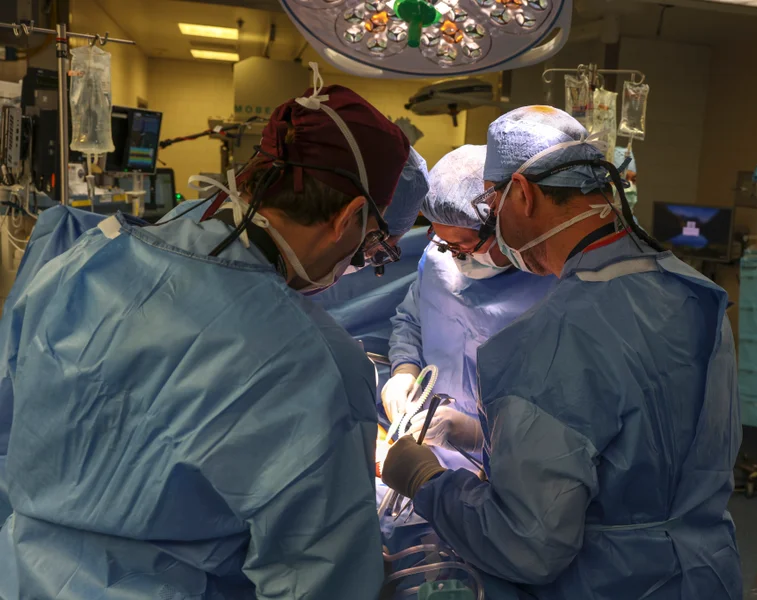
Surgeons in the United States have achieved a groundbreaking milestone by successfully transplanting a genetically-edited pig kidney into a human recipient. The recipient, 62-year-old Rick Slayman, underwent the four-hour surgery on March 16 and is now expected to be discharged soon.
Slayman, who had been battling end-stage kidney disease, had previously received a human kidney transplant in 2018 but faced complications leading to the need for dialysis. The successful pig kidney transplant offers hope not only for his recovery but also for countless others awaiting organ transplants.
The pig kidney used in the transplant underwent genetic editing using CRISPR-Cas9 technology to enhance compatibility with humans. This achievement marks a significant advancement in xenotransplantation, the process of transplanting animal organs into humans, which could potentially address the critical shortage of human organs available for transplant surgeries.
Dr. Tatsuo Kawai, Chair of Transplant Surgery at Massachusetts General Hospital, hailed the success of the transplant as the culmination of efforts by thousands of scientists and physicians over several decades. He expressed hope that this transplant approach could serve as a lifeline for millions of patients worldwide suffering from kidney failure.
While the procedure carries risks, including the potential transmission of unknown pathogens and triggering immune responses, the success of Slayman’s transplant demonstrates promising progress in the field. The ongoing success of such groundbreaking transplants could also help address systemic barriers, ensuring equitable access to life-saving treatments for all patients in need.
This milestone underscores the potential of xenotransplantation to revolutionize organ transplantation and offers hope for a future where organ shortages are no longer a barrier to life-saving treatments.






Be First to Comment